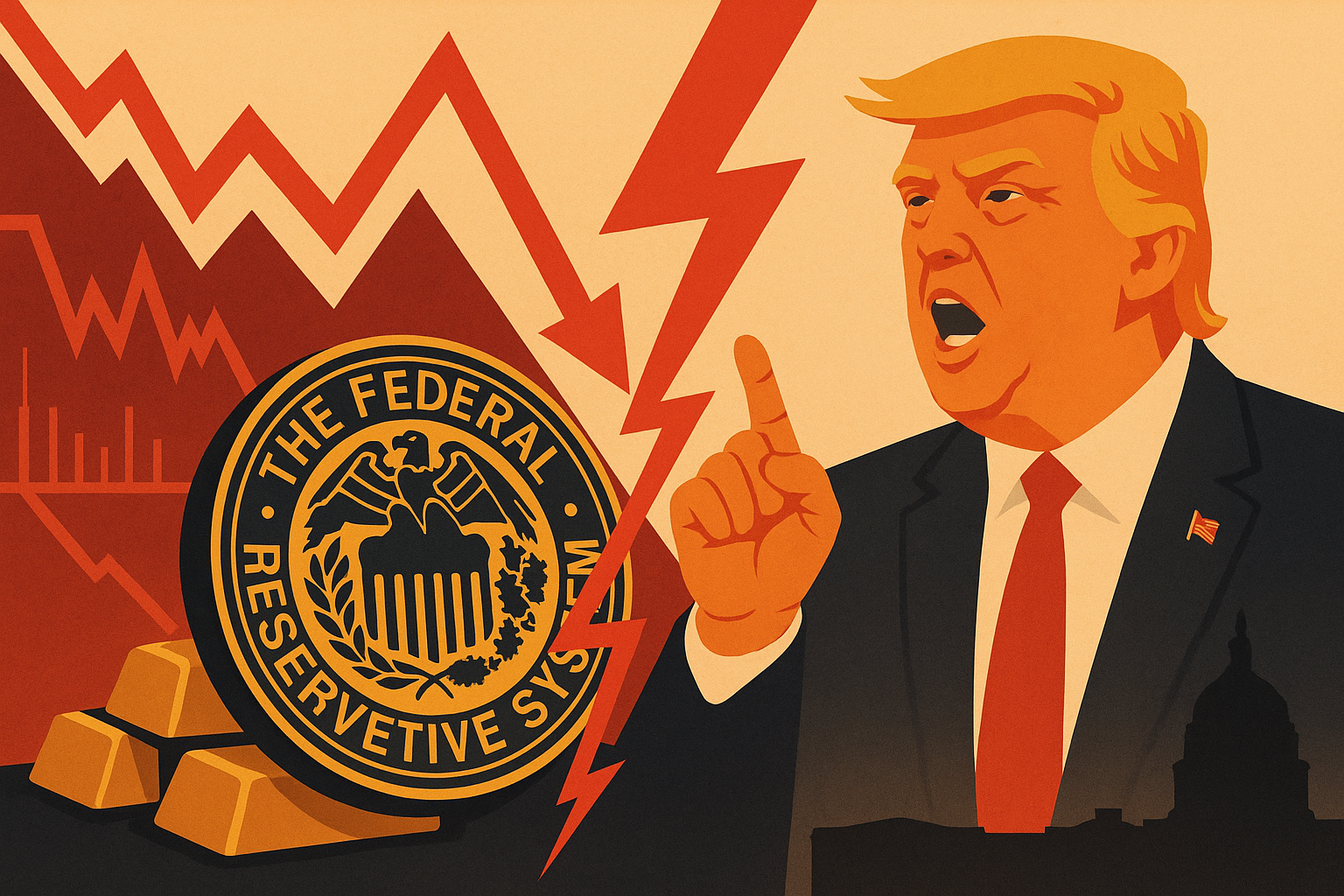Investor nerves are fraying as President Trump has intensified his public criticism of Federal Reserve Chair Jerome Powell, including veiled threats of dismissal. This unprecedented level of political interference in U.S. monetary policy has shaken markets, prompting bouts of volatility across Treasury yields and equity prices. The unfolding drama raises critical questions about the independence of the Fed and its ability to steer the economy through complex inflation and growth dynamics.
In a recent string of statements covered by Al Jazeera and Business Insider (July 22, 2025), Trump accused Powell of “failing” to support economic growth, casting doubt on his tenure and implicitly signaling a potential leadership shakeup. Such attacks have sparked concern among investors that political considerations could compromise the Fed’s traditional autonomy — a bedrock principle underpinning stable financial markets.
Why This Matters for Investors
The Federal Reserve’s independence is fundamental to maintaining credible monetary policy, managing inflation expectations, and anchoring market confidence. Any hint of political meddling risks unsettling investors, with real consequences:
- Rising Treasury Yields: Bond markets have reacted nervously, with the 10-year Treasury yield jumping 20 basis points in recent days, reflecting increased risk premiums and uncertainty about future rate policies.
- Equity Market Volatility: Stock indexes, particularly rate-sensitive sectors like technology and real estate, have seen heightened swings, as investors recalibrate risk in light of potential policy disruption.
- Inflation and Growth Risks: A politicized Fed may face pressure to prioritize short-term growth over inflation control, fueling inflationary expectations and potentially derailing long-term economic stability.
Bloomberg analysts warn that sustained political pressure on the Fed could compromise its ability to act decisively, increasing the odds of policy errors that would exacerbate market turbulence.
Future Trends to Watch
Investors should monitor several key indicators and developments closely:
- Fed Communications: Any shifts in tone or messaging from Powell or other Fed officials could signal erosion of policy independence or changes in rate trajectory.
- Legislative Developments: Congressional responses to the politicization debate, including hearings or reforms aimed at safeguarding Fed autonomy.
- Market Sentiment and Positioning: Rising volatility in Treasury and equity markets could lead to wider risk premiums and reduced liquidity, impacting portfolio strategies.
Research from the Federal Reserve Bank of New York suggests that market uncertainty tends to spike during episodes of perceived political interference, often leading to flight-to-quality trades and volatility spikes.
Key Investment Insight
Given the potential for sustained volatility stemming from Fed-political tensions, investors should consider:
- Defensive Positioning: Increasing allocations to sectors less sensitive to interest rates and economic cycles, such as consumer staples and utilities.
- Interest Rate Hedges: Utilizing Treasury Inflation-Protected Securities (TIPS), short-duration bonds, or options strategies to mitigate risks from rising yields.
- Safe-Haven Assets: Allocating a portion of portfolios to gold and high-quality sovereign debt, which historically perform well amid policy uncertainty.
- Stay Informed: Maintaining vigilance on Fed announcements, political developments, and market reactions to adjust exposures swiftly.
Investors navigating these turbulent waters must recognize that the interplay between politics and monetary policy introduces new layers of complexity to risk management and portfolio construction. The independence of the Federal Reserve, long considered sacrosanct, now faces scrutiny that could redefine market dynamics in the months ahead.
For continuous updates and expert analysis on this evolving story, keep following MoneyNews.Today, your trusted source for critical investor news and insights.





